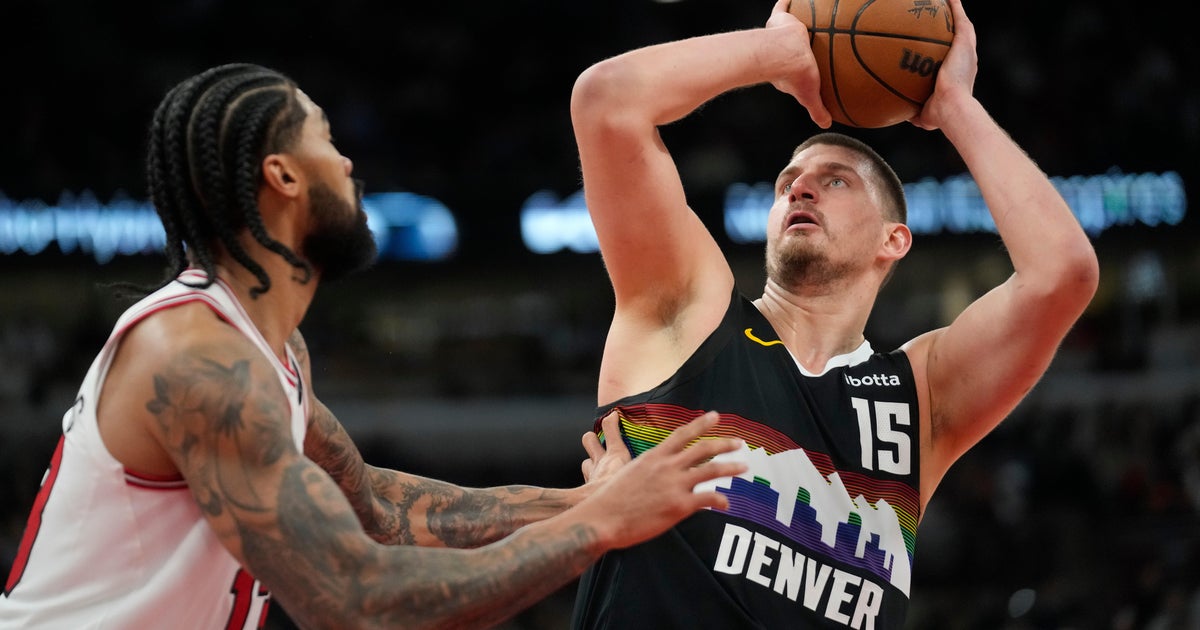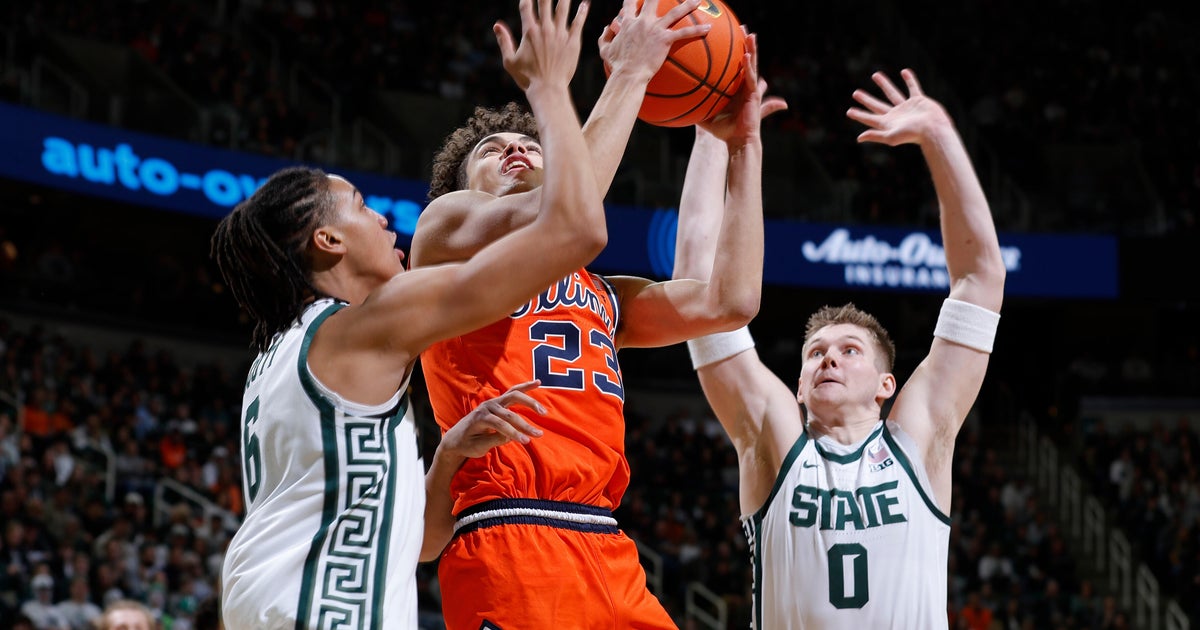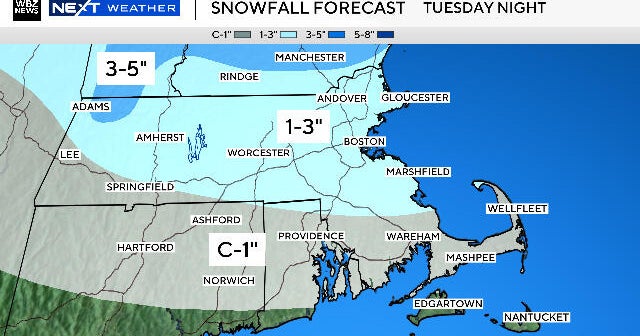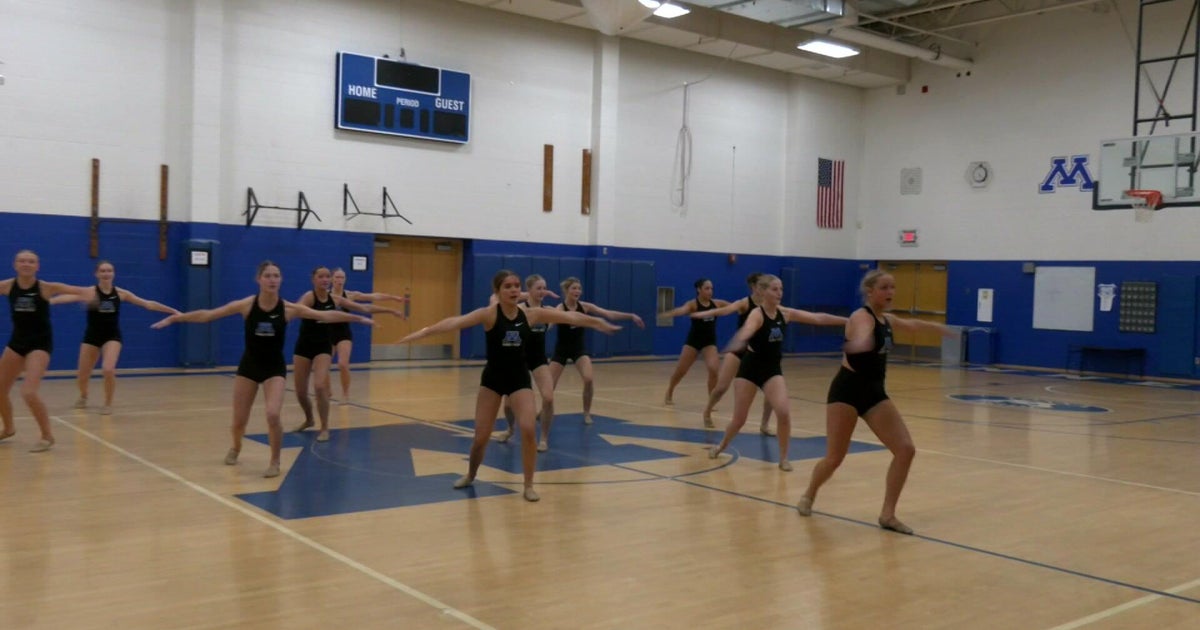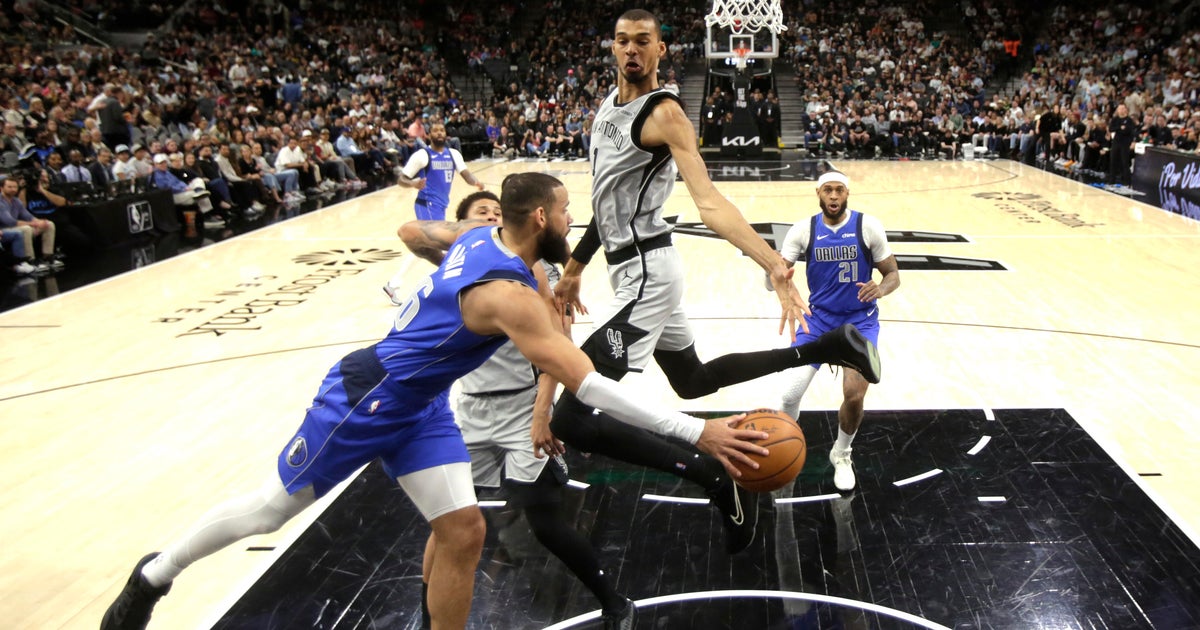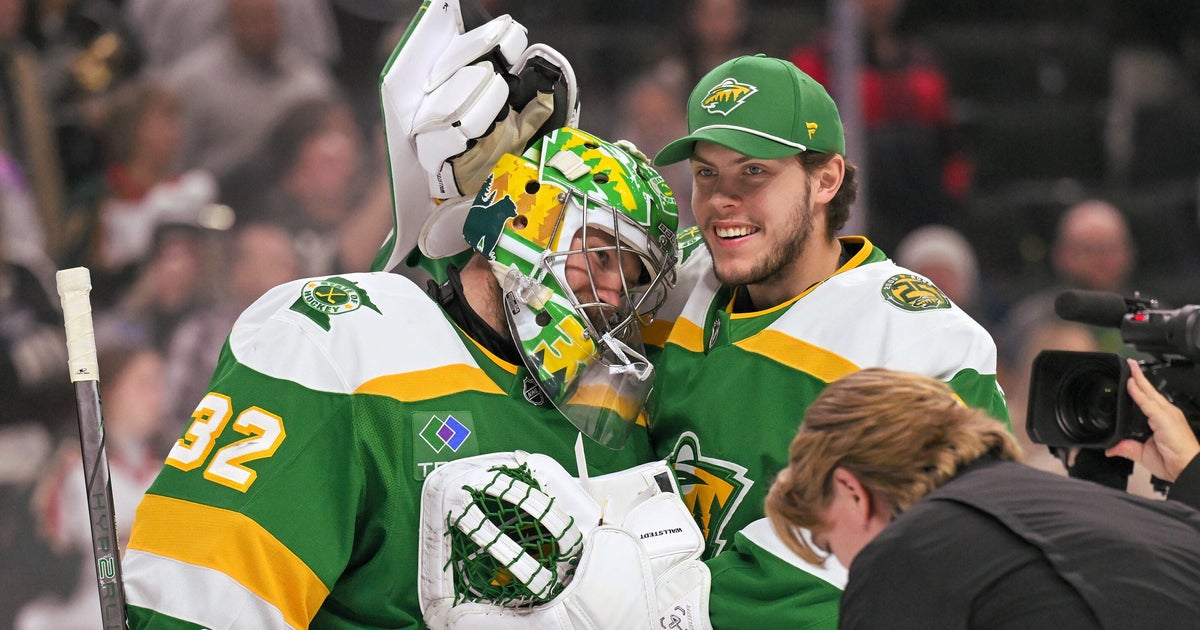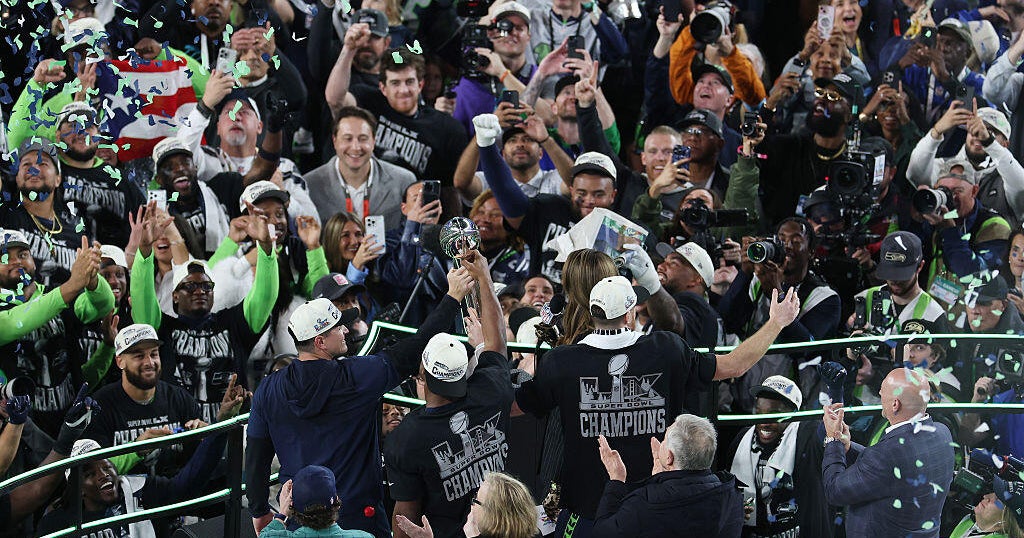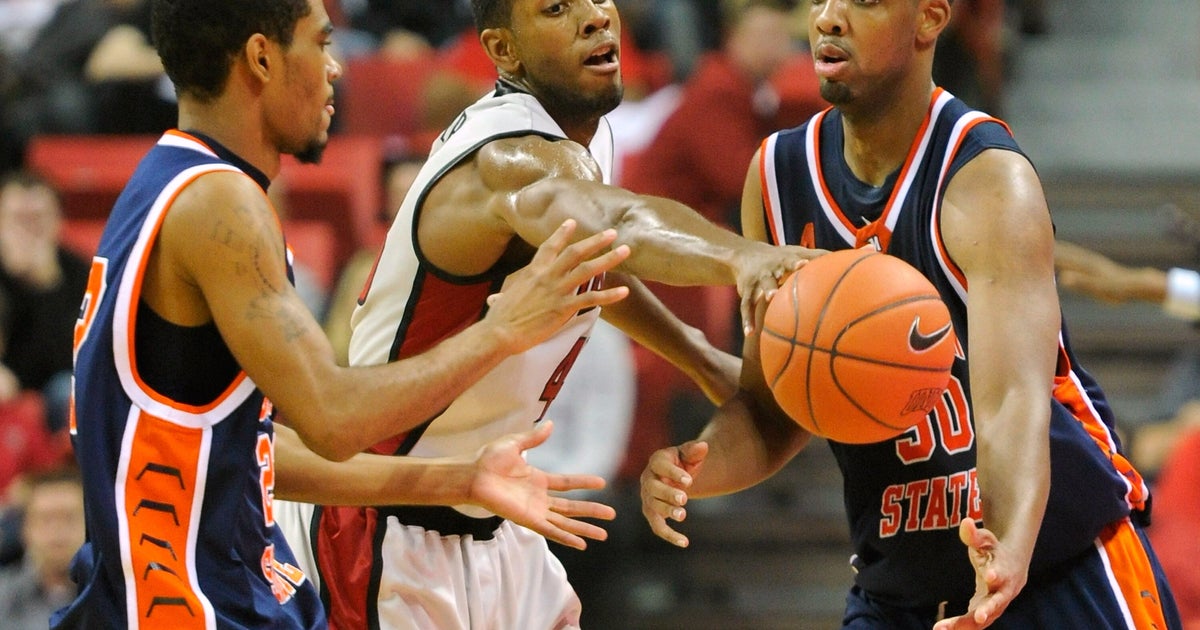Despite Stellar Record, Bruins Still Have A Real Problem
BOSTON (CBS) -- The Boston Bruins are 14-3-3, sitting one point out of first place in the Northeast Division and the Eastern Conference, still with the fewest games played in the NHL. So despite Tuesday night's 4-3 overtime loss in Washington, there's no reason to sound too many alarms regarding the character and makeup of this year's team.
Still, while the Bruins in many ways look to be the class of the East, they have themselves a very real problem.
Try to spot the trend:
Jan. 31 vs. Buffalo: The Bruins take a 4-3 lead early in the third period on a goal by David Krejci before allowing the Sabres to score less than a minute later. The Sabres score twice more before tacking on an empty-netter to win 7-4.
Feb. 15 at Buffalo: The Bruins lead 2-1 after two periods but allow three third-period goals in a 4-2 loss.
March 3 vs. Montreal: The Bruins take a 3-2 lead into the third period before allowing two third-period goals in a 4-3 loss.
March 5 at Washington: Bruins open up 3-0 lead after the first period but allow three unanswered goals over the next 34 minutes, eventually losing 37 seconds into the overtime period.
That's 66 percent of the Bruins' six total losses coming after they held a lead through two periods, and that's obviously not very good. That's especially the case when you consider that last year, the then-defending Stanley Cup champions were a perfect 32-0-0 when leading after two periods. Even more, they were 23-2-0 when leading after the first period, and according to the Elias Sports Bureau, they were 89-1-0 since 2008-09 when leading by three goals at any point in a game entering last night.
Had last night been the first we've seen of such a late-game collapse or blown lead, we could pass it off as an anomaly, but with it happening in 20 percent of their games this season, it's becoming a bit too common for comfort.
What is simultaneously frightening and reassuring for the Bruins is that most of these issues and losses have stemmed from uncharacteristic breakdowns in the defensive zone. The Capitals' first goal came when Zdeno Chara missed his pass to Rich Peverley along the boards, giving the puck to Steven Oleksy at the blue line. The Capitals' second goal came after Chris Kelly, winner of 60.8 percent of his faceoffs, got dominated off the drop by Nicklas Backstrom, and Brad Marchand struggled to get through Eric Fehr and was late to disrupt Tomas Kundratek's shot. And on the third Washington goal, Dougie Hamilton lost sight of Wojtek Wolski, who got behind the defense for the game-tying goal.
For a team with a head coach whose system focuses on defense above all else, it's strange to see. When it happened in that Buffalo loss, it was immediately written off as a fluke, because surely it couldn't happen again. Now, it's hard to say the same.
That's not, of course, to doom the Bruins, but before Tuesday night, most would have claimed the team's biggest issue has been an inability to blow out an opponent and make a win look easy. The 3-0 lead looked to be leading them on that path, before malaise and complacency set in.
"Defensively, we need to be a lot better," Claude Julien said. "We're certainly not as good as we're capable of. That's an issue. We have a lot of guys that have to be better for us."
That is the bad news. The good news for the Bruins is that these players have proven capable of being much better. And just as their 8-1-1 start wasn't enough to declare them to be the dominant team of the East, this trend is not enough to bury their postseason chances or prove they don't have what it takes to win a championship.
So what can they do? Long term, they absolutely need to make additions prior to the trading deadline. They need, first and foremost, another defenseman, because Aaron Johnson does not represent great depth in the event of an injury to any of the starting six. Andrew Ference has also looked to have fallen off significantly from his play the past two years, and even without an injury, the Bruins would be solidified by an upgrade to the lineup.
They could also use a forward, particularly one of those veterans whose names you've heard by now. But in this condensed schedule, fewer teams will feel out of the playoff race, so any big acquisition won't happen until the end of the month, if even then.
In the short term, Julien has to at least mix up his lines a bit. Chris Bourque clearly has not been good, but exactly how bad has he been? Consider that Kelly had a plus-33 rating last year (third-best in the NHL) and Rich Peverley was a plus-20 as the two spent the bulk of last season skating with Benoit Pouliot, who was a plus-18. This year, spending most of the season with Chris Bourque on their line, Kelly is a minus-7 and Peverley a minus-8, the two worst such marks on the team.
Julien doesn't require every player on his roster to be a goal-scorer, but if there's one thing that's not allowed, it's being irresponsible defensively. It's not all Bourque's fault, but the trio of Bourque-Kelly-Peverley, a combined minus-21 in 20 games, is not working. Perhaps it's time for Daniel Paille to move up to that third line on a more permament basis, with a rotation of Bourque, Jay Pandolfo and Shawn Thornton alternating time on the fourth line with Gregory Campbell. That would be a start.
But more than anything, it will come down to the coaches reminding the players that they can't give away leads and the players remembering every single shift that they can't afford to make mistakes. More often than not, they'll turn into opponents' goals.
Maybe after that impossible-to-maintain 1.000 winning percentage when holding a lead after two periods made them forget how easy it is to let a game slip away with the simplest of mistakes. Through just 20 games this season, they've taught themselves enough lessons to know better going forward.
Read more from Michael by clicking here, or find him on Twitter @michaelFhurley.
